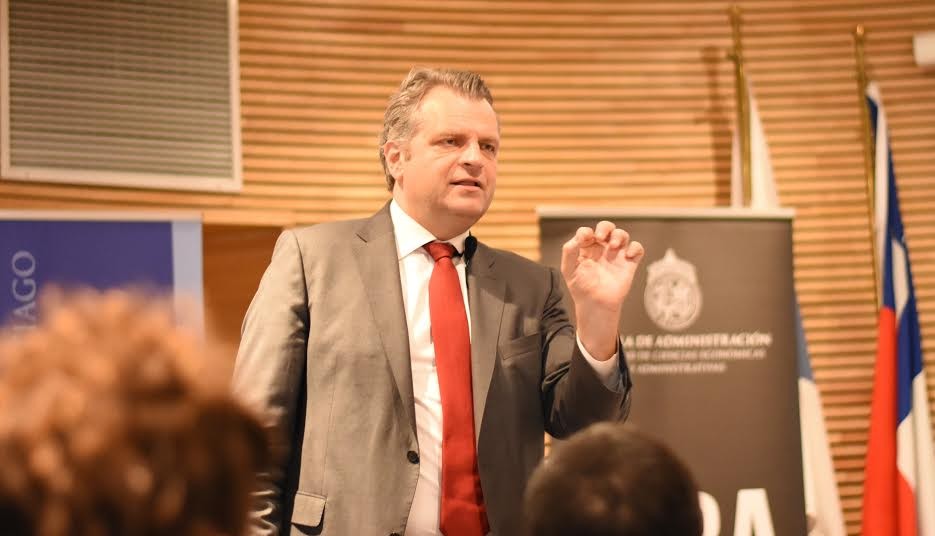Recent corporate scandals in the United States, Chile and elsewhere have highlighted the importance that companies should place on effectively mitigating and responding to reputational risk. If left uncontrolled the consequences can be extraordinary reductions in market value and long-term damage to reputation.
This was the topic of a recent event organized by the Santiago Center entitled “Reputational Risk: Lessons from Recent Corporate Scandals,” presented by Daniel Diermeier, the Provost of the University of Chicago and expert on reputational risk management.
The mid-April event, held at the Universidad Católica's School of Business Administration, featured opening remarks by the Dean of the School of Economics and Administration, José Miguel Sánchez. The subsequent discussion was chaired by Karen Poniachik, the Santiago Center’s Director.
As Provost, Diermeier is responsible for academic and research programs across the University of Chicago and oversees the budget. Diermeier has been an advisor to governments, non-profit organizations and leading corporations, and is the author of two books and over 90 research articles across a wide range of fields, including reputational risk management. Diermeier is a founding partner of Crisis Management Latin America, which sponsored his visit to Chile.
In his engaging, workshop-like talk, Diermeier presented a number of tools for companies and decision-makers to effectively manage reputational risk.
The “Trust Radar,” for example, is useful for plotting out a risk management response using the guiding concepts of empathy, commitment, transparency and expertise. The key, Diermeier said, is to encourage a company to use methods in the management of a crisis that are beyond their comfort zone, which is expertise, and incorporate all four concepts. He also described techniques for how to diagnose, respond and manage crisis that become media topics, and how to analyze a company’s worker culture to identify reputational risk and create a “culture of integrity.” The end goal is have a reputation management system that is one of the core competencies of a company.
The event is part of a Corporate Governance series hosted by the Columbia Global Center of Santiago. Diermeier’s presentation was co-sponsored by the MBA program at the Universidad Católica.
See pictures of the event here
Video of the event here

